Farm Boy 牧場の少年 from Final Fantasy VII ファイナルファンタジーVII with sheet music
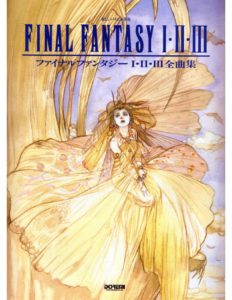
Sheet Music download here.
Music of the Final Fantasy VII series
Final Fantasy VII is a role-playing video game developed by Square (now Square Enix) and published by Sony Computer Entertainment as the seventh installment in the Final Fantasy series. Released in 1997, the game sparked the release of a collection of media centered on the game entitled the Compilation of Final Fantasy VII.
The music of the Final Fantasy VII series includes not only the soundtrack to the original game and its associated albums, but also the soundtracks and music albums released for the other titles in the collection.
The first album produced was Final Fantasy VII Original Soundtrack, a compilation of all the music in the game. It was released as a soundtrack album on four CDs by DigiCube in 1997. A selection of tracks from the album was released in the single-disc Reunion Tracks by DigiCube the same year. Piano Collections Final Fantasy VII, an album featuring piano arrangements of pieces from the soundtrack, was released in 2003 by DigiCube, and Square Enix began reprinting all three albums in 2004. To date, these are the only released albums based on the original game’s soundtrack, and were solely composed by regular series composer Nobuo Uematsu; his role for the majority of subsequent albums has been filled by Masashi Hamauzu and Takeharu Ishimoto.
The Compilation of Final Fantasy VII began eight years after the release of Final Fantasy VII with the release of the animated film sequel Advent Children in 2005. The soundtracks for each of the titles in the collection are included in an album, starting with the album release of the soundtrack to Advent Children that year. The following year, Nippon Crown released a soundtrack album to correspond with the video game Dirge of Cerberus, while Square Enix launched a download-only collection of music from the multiplayer mode of the game, which was only released in Japan. After the launch of the game Crisis Core in 2007, Warner Music Japan produced the title’s soundtrack. The latest album in the collection, Before Crisis: Final Fantasy VII & Last Order: Final Fantasy VII Original Soundtrack, was released by Square Enix the same year as a combined soundtrack album for the game Before Crisis and the animated movie Last Order.
The original music received highly positive reviews from critics, who found many of the tunes to be memorable and noted the emotional intensity of several of the tracks. The reception for the other albums has been mixed, with reactions ranging from enthusiastic praise to disappointment. Several pieces from the soundtrack, particularly “One-Winged Angel” and “Aeris’ Theme”, remain popular and have been performed numerous times in orchestral concert series such as Dear Friends: Music from Final Fantasy and Tour de Japon: Music from Final Fantasy. Music from the Original Soundtrack has been included in arranged albums and compilations by Square as well as outside groups.
Browse in the Library:
| Artist or Composer / Score name | Cover | List of Contents |
|---|---|---|
| Unforgettable Musical Memories – Reader’s Digest Songbook, A |
 |
Unforgettable Musical Memories – Reader’s Digest Songbook, A |
| Unforgettable… The Lighter Side Of Jazz |
 |
Unforgettable… The Lighter Side Of Jazz |
| UNITED – Look To You Guitar Songbook |
 |
|
| Universal Studios Theme by Jerry Goldsmith arr. Yame Puts |
 |
|
| University Musical Encyclopedia The Theory Of Music And Piano Technique (By E Markham) (1912) | Musical Encyclopedia I | |
| Untraceable – Kill With Me – Christopher Young | ||
| Untraceable – Missing Flowers – Christopher Young | ||
| Uomini soli (Pooh) | ||
| Up (Theme) Married Life By Ari Burns (Piano Solo) |
 |
|
| Up The – Married Life (Piano Solo Arr. Sheet Music) | Up The – Married Life (Piano Solo Arr. Sheet Music) | |
| Upon The Wind There Comes A Song (Musescore File).mscz | ||
| Upon The Wind, There Comes A Song Tradition Irish Melody |
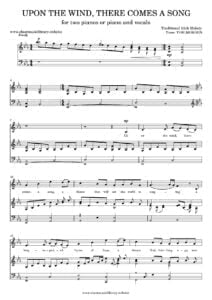 |
|
| Uriah Heep – Sheet Music songbook |
 |
Uriah Heep – Sheet Music songbook (Piano Vocal and Guitar Chords) |
| Urlicht (Gustav Mahler) | ||
| Usher – Make Me Wanna | ||
| Utada Hikaru-First love | ||
| V.S.O.P. Super Jazz Sound Herbie Hancock, Tony illiams,Wayne Shorter, Ron Carter, Freddie Hubbard |
 |
V.S.O.P. Super Jazz Sound Herbie Hancock, Tony illiams,Wayne Shorter, Ron Carter, Freddie Hubbard |
| Valse (Fanfan OST) Nicolas Jorelle | ||
| Valse Crepusculaire (Providence OST) Miklós Rózsa | ||
| Valse Etude – William Gillock Piano Solo Musescore File.mscz | ||
| Valse Op 51 N 1 – Fernando Sor (Musescore File).mscz | ||
| Valzer del Commiato (Il Gattopardo OST) Nino Rota | ||
| Valzer di Lupin (Lupin 3 OST) Franco Micalizzi | ||
| Vampire Weekend Songbook Piano Vocal Guitar Tab |
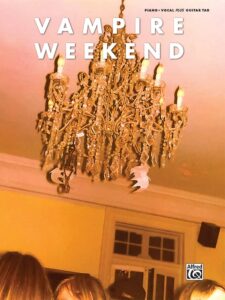 |
Vampire Weekend Songbook Piano Vocal Guitar Tab |
| Van Halen (Van Halen Songbook ) Guitar Full score with TABs |
 |
Van Halen (Van Halen Songbook ) Guitar Full score |
| Van Halen – 1984 Guitar TAB songbook transcribed by Brand McPhail |
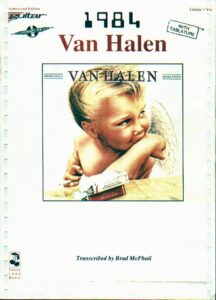 |
Van Halen – 1984 Guitar TAB songbook transcribed by Brand McPhail |
| Van Halen – 5 of the Best Play-It-Like-It-Is Guitar with TABs |
 |
Van Halen – 5 of the Best Play-It-Like-It-Is Guitar |
| Van Halen – Everybody Wants Some The Van Halen Saga (Book by Ian Christe) |
 |
|
| Van Halen – Jump | ||
| Van Halen – Right Now | ||
| Van Halen (Guitar Backing tracks with TABs) Jam with Van Halen – (with MP3 audio tracks to play along) |
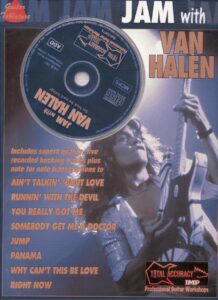 |
Jam with van Halen |
| Van Halen 30 Classics From The Legendary Guitar God (Authentic Guitar Tab) (Authentic Guitar Tab Editions) |
 |
Van Halen 30 classics |
| Van Halen Anthology Guitar songbook with TABs |
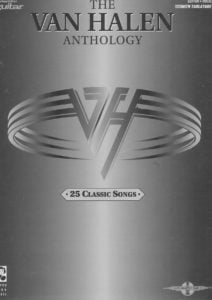 |
Van Halen Anthology Guitar songbook |
| Van Mccoy – Baby Im Yours | ||
| Van Morrison Have I Told You Lately That I Love You (Rod Stewart Ver.) | Van Morrison Have I Told You Lately That I Love You (Rod Stewart Ver.) | |
| Van Morrison The Guitar Collection with TABs |
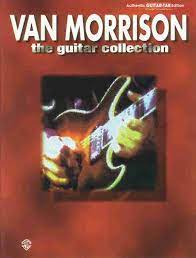 |
Van Morrison The Guitar Collection |
| Van Morrison – Anthology Songbook Piano Vocal Guitar Chords |
 |
Van Morrison – Anthology Songbook Piano Vocal Guitar Chords |
| Van Morrison – Back On Top Book Songbook Piano Vocal Guitar Chords |
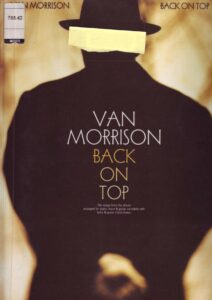 |
Van Morrison – Back On Top Book Songbook Piano Vocal Guitar Chords |
| Van Morrison – Have I Told You Lately That I Love You (Rod Stewart Ver.) (Musescore File).mscz | ||
| Van Morrison – Veedon Fleece Piano Vocal Guitar Chords |
 |
Van Morrison – Veedon Fleece Piano Vocal Guitar Chords |
| Van Morrison Sheet Music Anthology |
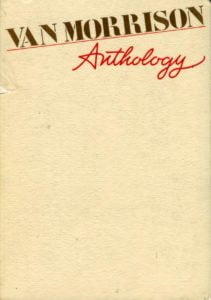 |
Van Morrison Sheet Music Anthology |
| Van(Var) (A Silent Voice) |
 |
|
| Vanessa Carlton – A Thousand Miles | ||
| Vanessa Carlton – Afterglow | ||
| Vanessa Carlton – All I Ask | ||
| Vanessa Carlton – All Is Well | ||
| Vanessa Carlton – Ameriteen | ||
| Vanessa Carlton – Birdie | ||
| Vanessa Carlton – Burden | ||
| Vanessa Carlton – Cest La Vie | ||
| Vanessa Carlton – Dark Carnival | ||
| Vanessa Carlton – Devil Dance | ||
| Vanessa Carlton – Faces | ||
| Vanessa Carlton – Half A Week Before The Winter | ||
| Vanessa Carlton – Last Fall | ||
| Vanessa Carlton – Little Mary | ||
| Vanessa Carlton – Meggie Sue | ||
| Vanessa Carlton – Morning Sting | ||
| Vanessa Carlton – Ordinary Day | ||
| Vanessa Carlton – Papa | ||
| Vanessa Carlton – Pretty Baby | ||
| Vanessa Carlton – Private Radio | ||
| Vanessa Carlton – Put Your Hands On Me | ||
| Vanessa Carlton – Red Ditty | ||
| Vanessa Carlton – San Francisco | ||
| Vanessa Carlton – She Floats | ||
| Vanessa Carlton – Swindler | ||
| Vanessa Carlton – The One | ||
| Vanessa Carlton – The Wreckage | ||
| Vanessa Carlton – This Time | ||
| Vanessa Carlton – Time Is On My Side | ||
| Vanessa Carlton – Twilight | ||
| Vanessa Carlton – White Houses | ||
| Vanessa Carlton – Whos To Say | ||
| Vanessa Carlton – Wonder | ||
| Vanessa Carlton Harmonium Songbook |
 |
Vanessa Carlton Harmonium Songbook |
| Vanessa Williams – Colors Of The Wind | ||
| Vanessa Williams – Save The Best For Last | ||
| Vanessa’s dream – Penny Dreadful OST (Abel Korzeniowski) | ||
| Vangelis Antarctica Guitar Arr With Tabs (1 or 2 Guitars with Tablature) | Vangelis Antarctica Guitar Arr With Tabs (1 or 2 Guitars with Tablature) | |
| Vangelis – Antarctica Guitar arr with TABs (1 or 2 guitars).mscz | ||
| Vangelis – Blade Runner – Piano in an Empty Room |
 |
|
| Vangelis – Chariots Of Fire | Vangelis Charriots of fire | |
| Vangelis – Chariots Of Fire (Guitar with TABs) | Vangelis – Chariots Of Fire (Guitar with TABs) | |
| Vangelis – Conquest Of Paradise | Vangelis – Conquest Of Paradise | |
| Vangelis – Conquest Of Paradise (Musescore File).mscz | ||
| Vangelis – Five Circles from Chariots of Fire (Guitar arr. with Tablature) | Vangelis – Five Circles from Chariots of Fire (Guitar arr. with Tablature) | |
| Vangelis – L’enfant (from The Year of Living Dangerously) (Guitar with TABs) | Vangelis – L’enfant (from The Year of Living Dangerously) (Guitar with TABs) | |
| Vangelis – La Petite Fille De La Mere (from L’Apocalypse des Animaux) (Guitar with TABs) | Vangelis – La Petite Fille De La Mere (from L’Apocalypse des Animaux) (Guitar with TABs) | |
| Vangelis – La Petite Fille De La Mere (Guitar TABs) |
 |
|
| Vangelis – Missing Main Theme From the film Missing (Guitar TABs) | Vangelis – Missing Main Theme From the film Missing (Guitar TABs) | |
| Vangelis – Missing Main Theme From the film Missing (Piano) | Vangelis – Missing Main Theme From the film Missing (Piano) | |
| Vangelis – Prelude |
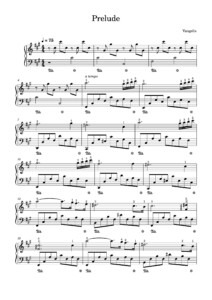 |
|
| Vangelis – The Best Of (piano songbook) |
 |
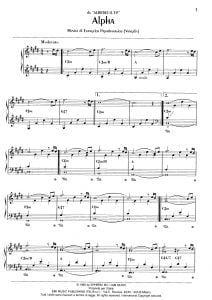 |
| Vangelis Aphrodite’s Child Rain And Tears Guitar |
 |
|
| Vangelis Heaven and Hell Piano Solo |
 |
|
| Vangelis La Petite Fille De La Mer piano solo |
 |
|
| Variations In Merry Go Round Of Life – Joe Hisaishi | Variations In Merry Go Round Of Life – Joe Hisaishi | |
| Vassiliev Konstantin Three Forest Painting Guitar |
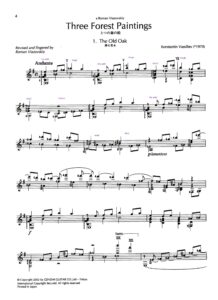 |
|
| Vassiliev, Konstatin Alba (1996) Guitar Sheet Music With Tabs |
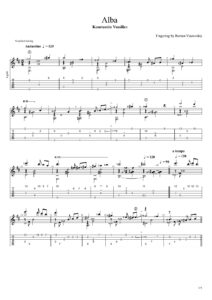 |
|
| Vaughan Williams The Lark Ascending (Violin and Piano Reduction) |
 |
|
| Vaughan Williams – Fantasia On A Theme By Thomas Tallis (Musescore File).mscz | ||
| Vaughan Williams Lark Ascending Piano violin arr. by J. Godderis |
 |
|
| Vaughan Williams On Music Oxford Un. by David Manning (Book) |
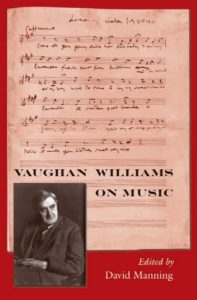 |
|
| Vavilov Vladimir Ave Maria (Wrongly Attributed To G.Caccini) Piano And Two Voices |
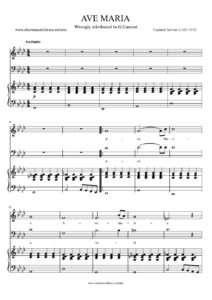 |
|
| Vavilov Vladimir – Ave Maria (Wrongly Attributed To G.Caccini) Piano And Two Voices (Musescore File).mscz | ||
| Vazha Azarashvili – Nocturne |
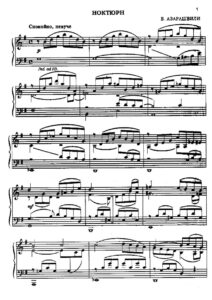 |
|
| Vazha Azarashvili – Nostalgia |
 |
|
| Vazha Azarashvili Sentimental Tango (4 hands piano sheet music) | Vazha Azarashvili Sentimental Tango (4 hands piano sheet music) first page | |
| Vazha Azarashvili Sentimental Tango (piano solo sheet music) | Vazha Azarashvili Sentimental Tango (piano solo sheet music) | |
| Vedrai vedrai (Luigi Tenco) | ||
| Velazquez, Consuelo Amar Y Vivir (Guitarra, Guitar) |
 |
|
| Vengaboys – Boom Boom Boom | ||
| Venice (Only You OST) Rachel Portman | ||
| Verdi Il Trovatore – Anvil Chorus Piano Solo |
 |
|
| Verdi Va Pensiero Piano Solo Arr. Nabucco Acte III Choeur Des Ésclaves Hébreux | Verdi Va Pensiero Piano Solo Arr. Nabucco Acte III Choeur Des Ésclaves Hébreux | |
| Verdi – La Donna è Mobile |
 |
|
| Verdi – La Donna È Mobile (Musescore File).mscz | ||
| Verdi – La Traviatta – Piano Solo arr. |
 |
|
| Verdi – Libiamo Ne Lieti Calici (La Traviata) (Musescore File).mscz |
Creation and development

Final Fantasy VII was scored by the series’ main composer Nobuo Uematsu
Nobuo Uematsu composed the music of Final Fantasy VII in less than one year, matching the game’s development time, although he had taken two years to create the soundtrack for the previous title, Final Fantasy VI. Final Fantasy VII was the first game in the series to be developed for the PlayStation, and while the media capabilities of the console allowed for pre-recorded Linear PCM (often as Red Book audio tracks on the CD), it was decided to generate the music in real time on the console instead, using samples and note data. This decision has been credited as giving the soundtrack “a very distinctive mood and feel”, forming a strong association for listeners between the game and its soundtrack.
Uematsu had initially planned to use vocal performances for the game to take advantage of the console’s capabilities, but found that the advanced audio quality required in turn made the game have much longer loading times in each area. Uematsu decided that the quality was not worth the effects on gameplay, though after the release and seeing Suikoden II (1998, PlayStation), which had used higher-quality music instead, he reversed his stance for Final Fantasy VIII. There was a plan to use a “famous vocalist” for the ending theme to the game as a “theme song” for the game, but time constraints and thematic concerns, caused the idea to be dropped. Uematsu has stated, however, that the move into the “PlayStation era”, which allowed video game composers to use sounds recorded in the studio rather than from synthesizers, had “definitely been the biggest change” to video game music.
Uematsu’s approach to composing the game’s music was to treat it like a film soundtrack and compose songs that reflected the mood of the scenes rather than trying to make strong melodies to “define the game”, as he felt that approach would come across too strong when placed alongside the game’s new 3D visuals. As an example, he composed the track intended for the scene in the game where Aerith Gainsborough is killed to be “sad but beautiful”, rather than more overtly emotional, creating what he feels is a more understated feeling. Uematsu has additionally said that the soundtrack has a feel of “realism”, which also prevented him from using “exorbitant, crazy music”.
The first piece that Uematsu composed for the game was the opening theme; game director Yoshinori Kitase showed him the opening cinematic to the game and asked him to begin the project there. The track was well received in the company, which gave Uematsu “a sense that it was going to be a really good project”. He later stated in the liner notes for the soundtrack album that the music for Final Fantasy VII was his “greatest harvest” to date.
Final Fantasy VII was the first game in the series to include a track with digitized vocals, “One-Winged Angel”. The track has been called Uematsu’s “most recognizable contribution” to the music of the Final Fantasy series, though the composer did not expect it to gain such popularity. The piece, described as “a fanfare to impending doom”, is said to not “follow any normal genre rules” and has been termed “possibly the most innovative idea in the series’ musical history”.
Uematsu approached the piece, which accompanies the final battle of the game, in a different manner than previous “boss tracks”: as he felt that using his normal approach would cause unfavorable comparisons to his well-received Final Fantasy VI boss tracks, he instead tried to take a different approach. Inspired by The Rite of Spring by Igor Stravinsky to make a more “classical” track, and by rock and roll music from the late 1960s and early 1970s to make an orchestral track with a “destructive impact”, he spent two weeks composing short unconnected musical phrases, and then arranged them together into a song, an approach he has never used before or since.
The lyrics of “One-Winged Angel”, a Latin choral track that plays at the climax of the game, were taken from the medieval poetry that forms the basis of Carl Orff‘s Carmina Burana, specifically “Estuans Interius”, “O Fortuna“, “Veni, Veni, Venias” and “Ave Formosissima”. Uematsu has stated that the intro of “One-Winged Angel” is based on Jimi Hendrix‘s “Purple Haze“, that the piece revolves around the image of Sephiroth, and that despite the chorus and orchestra, he still thinks of it as a “rock piece”. He said in a 2005 interview that “One-Winged Angel” is his favorite tune from the soundtrack, and in 2004 that it was his favorite battle theme from any Final Fantasy game.
Final Fantasy VII Albums
Original Soundtrack
Final Fantasy VII Original Soundtrack is a soundtrack album containing musical tracks from the game, composed by Nobuo Uematsu and produced by Uematsu and Minoru Akao. It was originally released on February 10, 1997 through DigiCube and later reissued directly by Square Enix on May 10, 2004. The soundtrack spans 85 tracks over four discs and has a combined duration of 4:39:53. A limited edition was produced along with the original album, containing illustrated liner notes with several pictures of Uematsu’s workspace and personal effects, various cutscenes and in-game screenshots from the game, and a discography.
The soundtrack covers a wide variety of musical genres, including rock, techno, orchestral, and choral, although the soundtrack as a whole is primarily orchestral. While many of the tracks were intended as background music, reviewers noted the emotional intensity of several tracks, especially “Aerith’s Theme”, which plays during a moment described as “the most shocking moment in video games,” and has been described as the most memorable track from the album. The theme has become popular among fans, and has inspired various arrangements. Other notable tracks include “Main Theme of Final Fantasy VII”. Themes from this track play during several other tunes from the soundtrack, such as “Words Drowned by Fireworks”, to tie the soundtrack together.
The regular edition of the album reached No. 3 on the Japan Oricon charts, while the limited edition reached No. 19. Overall, the album sold 148,000 copies as of January 2010, with the limited edition selling a further 21,000. The album was well received by critics. Allmusic awarded Uematsu’s original soundtrack a five-star rating.
Ben Schweitzer of RPGFan claimed that “for the most part, it’s a diamond”, with his primary complaint being the quality of the MIDI sound. He found the tracks to be “beautiful” and said that “One-Winged Angel” was “possibly the most innovative idea in the series’ musical history”.
Patrick Gann of RPGFan concurred and found all of the soundtrack’s tunes to be “memorable” and the Original Soundtrack to be “very worth the purchase”. Philip of Square Enix Music Online, however, disliked the sound quality of the soundtrack and saw several tracks as “trivial”, though he did note that Uematsu “has a flair for strong, memorable” pieces. In 2006, IGN ranked the album as the best Final Fantasy soundtrack to date and cited the “gripping” character themes and “One-Winged Angel” in particular as contributing factors. They also named “One-Winged Angel” as the best piece of music from the entire Final Fantasy series.
The original CDs for both releases were only published in Japan and include only Japanese track names. The official English track names were later added to digital releases of the soundtrack.
